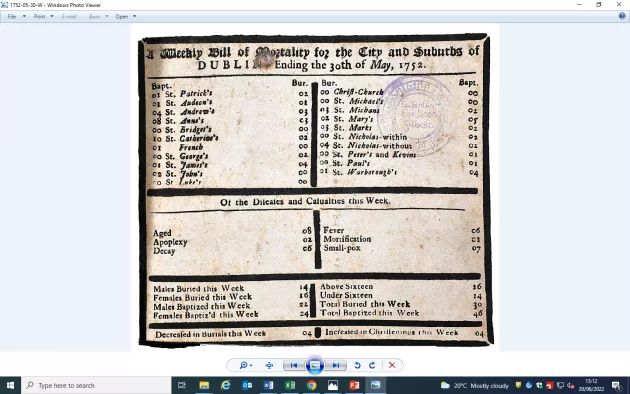The Communist Party of Ireland Collection and Bills of Mortality
Published on 12th July 2022
My name is Isabel, and I took part in an internship at Dublin City Library and Archives for two weeks in June of 2022. The internship was part of a module I studied last year, called ‘Exploring Heritage Collections’, which was organised by the School of English at Trinity in partnership with ten cultural institutions, including Dublin City Library and Archives.
The module looked at collections as creative resources, with a focus on digitised collections of the partner institutions. The focus of the internship was on digitising the Dublin City Library’s archival collections. The projects I worked on were at various stages of the digitisation process – the Communist Party of Ireland jpeg collection was in the early stages, while the Bills of Mortality were much closer to being fully digitised and entered into the Digital Repository of Ireland.
The Communist Party of Ireland Collection
The majority of the work I did was on the Communist Party of Ireland collection. This involved taking jpeg files from the collection and using Google Image Search to find these images online, and to record metadata or information about the images.
Origin of Images in the Communist Party of Ireland Collection
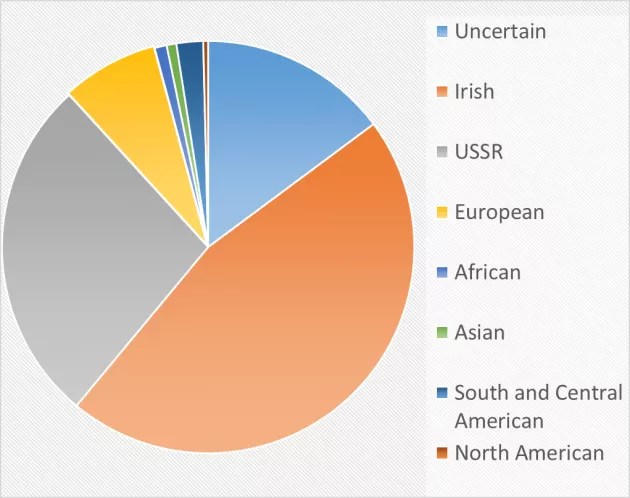
I sorted the images in the collection into categories based on their place of origin. Under half (46%) of the 518 images in the collection were conclusively of Irish origin – posters or other documents issued by Irish organisations, photographs taken in Ireland, or other material relating to events in Irish history.
I did not categorise 78 (15%) of the images. These were posters issued by international organisations, or photographs without text, recognisable landmarks etc. None could be found online.
I found most of the information through Google Image search. However, on a few occasions I was able to find images from the collection online that did not appear in Google results. When I searched for the image below, there was only one result.
Manchester, from Kersal Moor Illust. London News, July 4th, 1857. From the Communist Party of Ireland Collection.
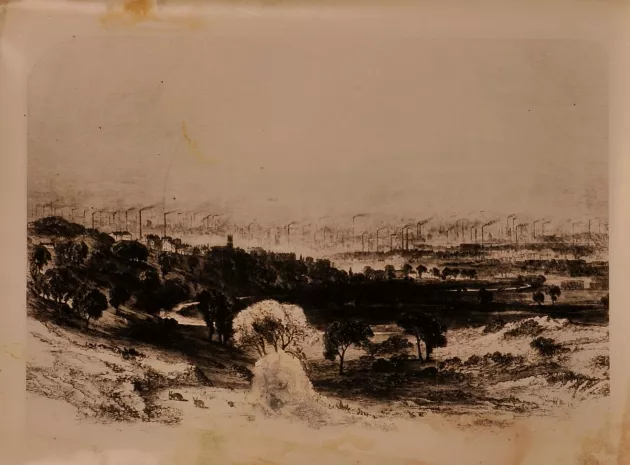
Image of website http://www.kersalflats.co.uk/history2.html
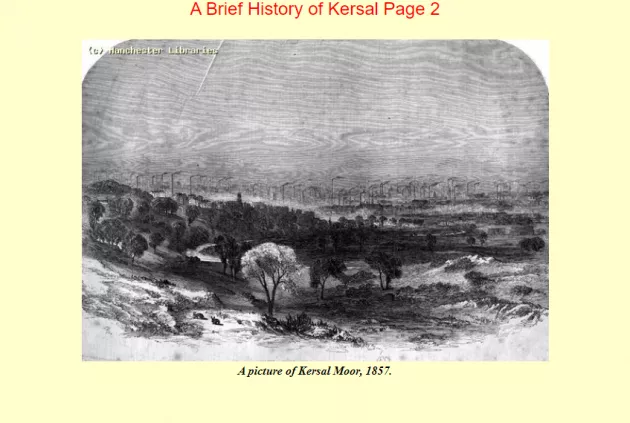
The creator of the website cited Manchester Libraries as the source of the image, and given its date as 1857. With this information, I could search the digital archives of Manchester Libraries and find useful metadata. However, the image in the digital collection of Manchester archives did not appear in Google search results.
Image of search results from the website of Greater Manchester Lives
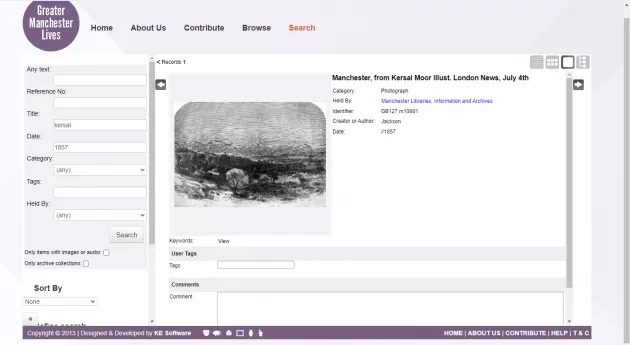
In the collection, there were images of TASS Window Posters – propaganda posters which produced by the TASS, a state-owned news agency, in the wake of the German invasion of the Soviet Union in 1941. Over a thousand posters were created in Moscow by groups of over seventy artists and writers working 24 hours a day. Some of the TASS Window Posters in the Communist Party of Ireland collection were available online in the digital collections of cultural institutions.
The TASS Window posters were drawn in a recognisable style and labelled as TACC No. X, so once I had found some of the posters through Google Image search, I was able to identify others. I found many of the posters for which there were no matching Google search results by manually searching the other TASS Window collections. I found that if there was a source that was consistently useful – such as the website posterplakat.com, a collection of 20th century USSR propaganda posters – and an image for which I had no matching Google results, I could often find information through manually searching the site for the image.
In some cases, where searching the image itself did not produce a match, Googling information which could be gathered from the image itself would give a result. Two images were covers of Arbeiters-Illustrierte Zeitung, or The Workers’ Illustrated Newspaper, a Communist newspaper printed between 1924 and 1933 in Berlin, then later exiled by the Nazis to Prague until 1938. By searching the date and issue number in the image, I was found the same image in the digital collection of the Kurt Tucholsky Literaturmuseum.
TASS No.788 from the Communist Party of Ireland Collection.
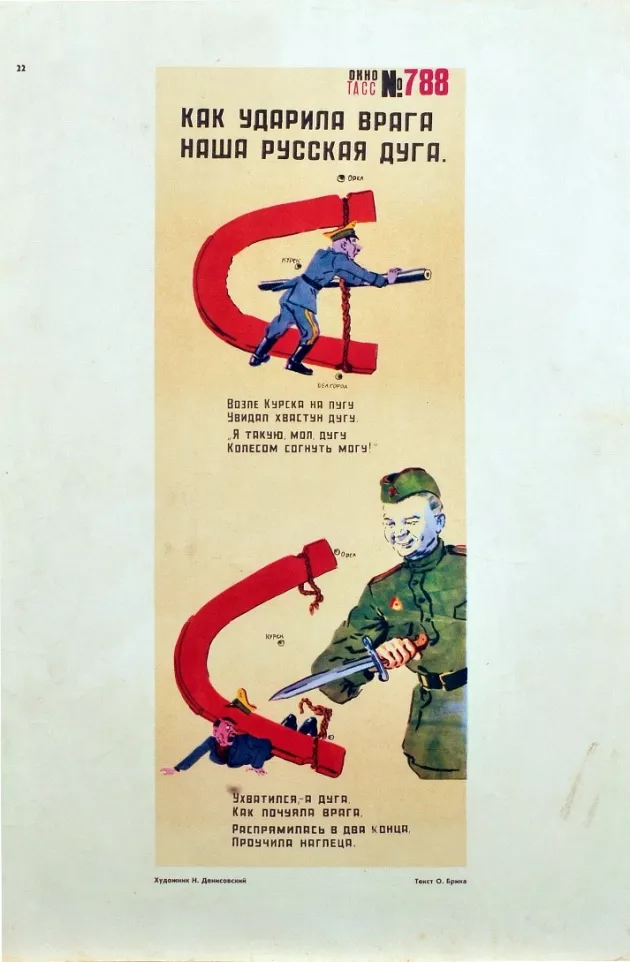
AIZ, Nr. 32, 1931. Cover Image: "The Poet Bernard Shaw in the Moscow Kremlin." From the Communist Party of Ireland Collection. From the Communist Party of Essex Street East, Crampton Court, Dublin 2.
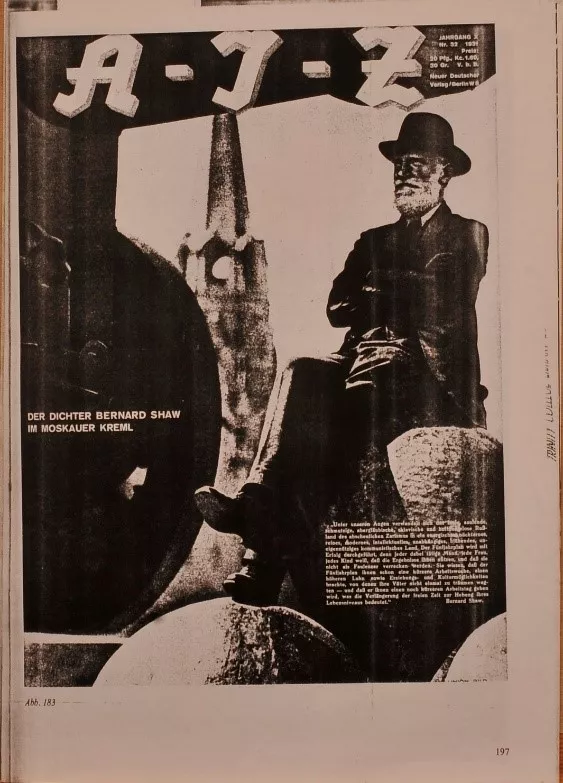
Of the entire collection, only 112 images (22%) could be found online. A disproportionate number of the Irish images, 229 (94%) were not available online. I drew as much identifying information as I could from text in these images. Many of the images were political posters, which contained dates, locations and information about the printers and the organisations which issued them. Some were images of identifiable places in Dublin.
Communist Party of Ireland Images Found and Not Found Online
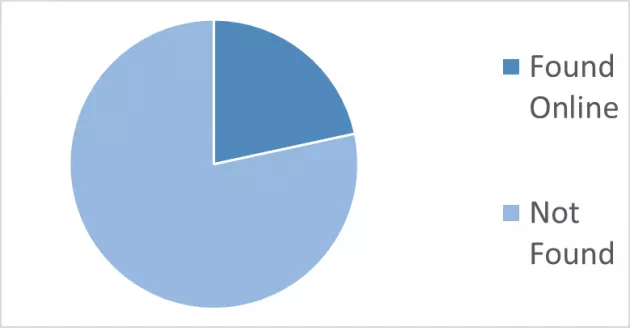
Bills of Mortality
The Bills of Mortality are documents dating from the 18th century which record the deaths and baptisms in the city and suburbs of Dublin between the years 1752 and 1757. I created a metadata spreadsheet for these images in preparation for ingest to the Digital Repository of Ireland.
This project was interesting not only because of the bills themselves, but because it gave me a glimpse at how the Digital Repository of Ireland works “behind the scenes”, how items are catalogued, what kind of information must be recorded and associated with each item, with the aim of making the items in the collection as accessible as possible and to provide as much information as possible to anyone searching the Digital Repository. The Bills of Mortality are tagged according to their subject, the time period they cover and their location of origin, so that they can be found by even a broad search.
A Weekly Bill of Mortality for the City and Suburbs of Dublin, Week Ending 30th May 1752
